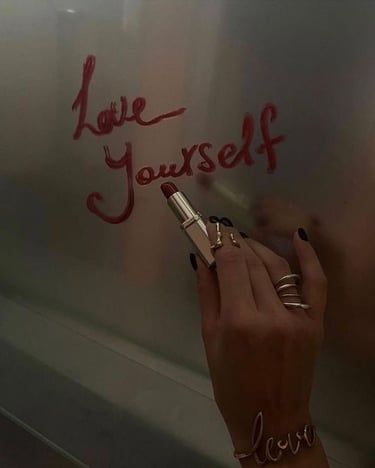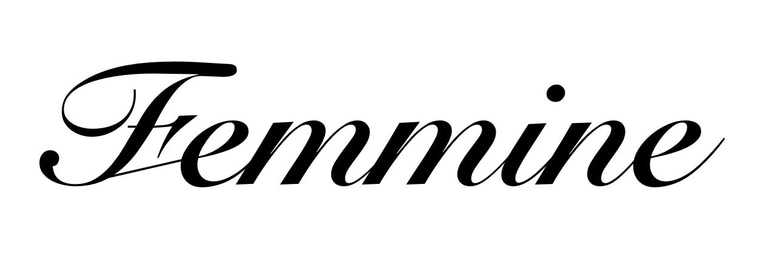This Summer, I'm Not Waging War On My Body - I'm Taking It Back
By Polly Jean Buckley
LIFESTYLE
Edited by Cece Wilson
9/28/20253 min read


I cried in therapy last week.
Sobbed, actually. It wasn’t my usual single tear brought on by a breakthrough—it was a sheer, unadulterated, borderline shrill, exasperated sob. The sun’s been out. Generally, I’m really happy. And yet, my hardwired brain is regurgitating its usual summer spiel. It’s starting to dissect everything that’s ‘wrong’ with my body and how to ‘fix’ it. Nothing screams summer like a big wave of earth-shattering insecurity.
So, I cried. Not because I was going to diet again, or because I have in recent years. I cried out of sheer exhaustion. Exhaustion from seeing the same negative thought cycle repeat itself—despite twelve years of eating disorders, and three years of recovery and food freedom. I cried because the thoughts still happen, as the media continues to capitalise on women’s insecurity.
Thinness, throughout my life, has been everywhere. This year, it’s Liv Schmidt and ‘Skinnitok’; last year, it was the rise of Ozempic and pseudo-wellness culture. Ten years ago, it was thigh gaps and Freelee’s ‘Raw till 4’ diet. Twenty years ago, it was tabloids and magazines ripping apart women’s bodies.
But frankly, I’m done.
I was already done with following, engaging with, or listening to any thinness trends. But now, I’m done with the thoughts. I’m done wasting summers by filling myself with insecurity. I’m done waging war on my body—whether physically or emotionally.
As women, we’re fed reasons to be dainty and thin from the moment we gain bodily autonomy—at the expense of that very autonomy, and often, our health. But what about reasons to just exist, and fill our minds with more fruitful notions?
The first of which is simple: one of the easiest ways to harm our health is to starve ourselves of essential nutrients and push our bodies excessively through exercise. The second is closely related: one of the quickest ways to damage our emotional wellbeing and capacity for joy is to obsess over the size and shape of our bodies.
What’s important about summer is enjoyment—having fun on the beach without worrying about how we look; wearing the new dress without scrutinising every nook and cranny of our bodies. More importantly, it’s about focusing on what we’re doing, the people around us, and how we’re engaging with the world.
As an added bonus, when we do this, we set an example for younger generations. And what a joy it would be if that example celebrated women who refuse to let diet culture dictate their happiness.
When it comes to reclaiming our bodies, the rhetoric we feed ourselves is where we begin.
For years, I’ve channelled as much energy as possible into loving my body—searching for positivity in places where the media insists there is only negativity. But I’ve come to realise that even this approach centres my focus too much on my body.
By striving every day to meet the impossible task of loving myself, I end up thinking about my body constantly. And when I fail to meet that standard, I’ve got yet another reason to be self-critical.
Reclaiming my body, therefore, means looking at it through neutral eyes.
Popularised by Anne Poirier in her book The Body Joyful, body neutrality encourages us to spend less time thinking about our bodies, and more time focusing on our internal worth. It means valuing our bodies for what they do rather than how they look.
It’s an ongoing practice—one that takes effort and consistency. It doesn’t mean never having bad body image days, but instead approaching those days with empathy and understanding. That, to me, is the new iteration of self-love.
The mantra is relatively simple: focus on function over form, be mindful of our self-talk, practise body-neutral affirmations (“My body is a tool, not an ornament”), and offer our peers non-appearance-based compliments.
The result? Bodily autonomy, and freedom from patriarchal constraints. We begin to see our bodies as tools—not definitions of who we are, but vessels that allow us to experience the world and all its joys.
Body neutrality—and the joy and freedom it can offer—is a radical act of resistance.
At 27, this doesn’t just feel like the right place to land. It feels like the only place that makes sense.
Thinness, dieting, and body obsession are more than just distractions from joy. They’re distractions from deeper forms of resistance and rebellion. If we’re taught to believe that our worth lies solely in how we look, then of course we’ll pour all our energy into winning a battle that was never ours to begin with.
But body neutrality shifts the focus.
It’s not just about loving ourselves. It’s about freeing ourselves.
And in doing so, it opens the door to a much bigger, bolder kind of liberation—as we grow older, and as we begin to live on our own terms.
For more, explore fashion, travel, and lifestyle insights here.
Subscribe to our newsletter!
info@femmine.co.uk
